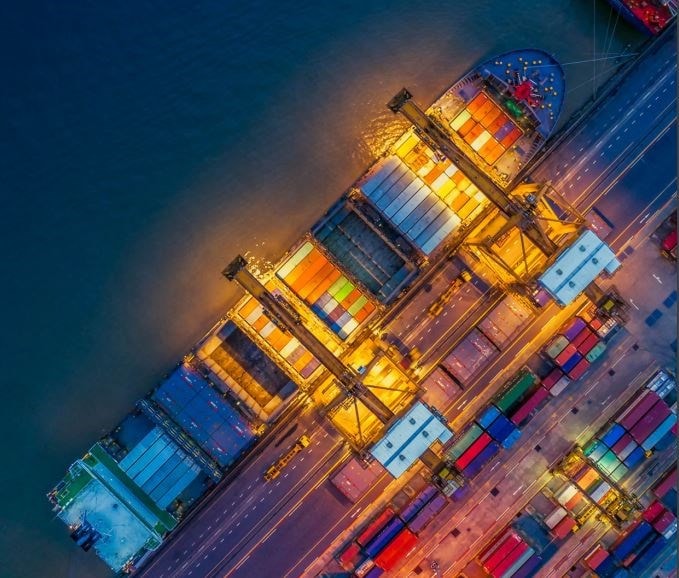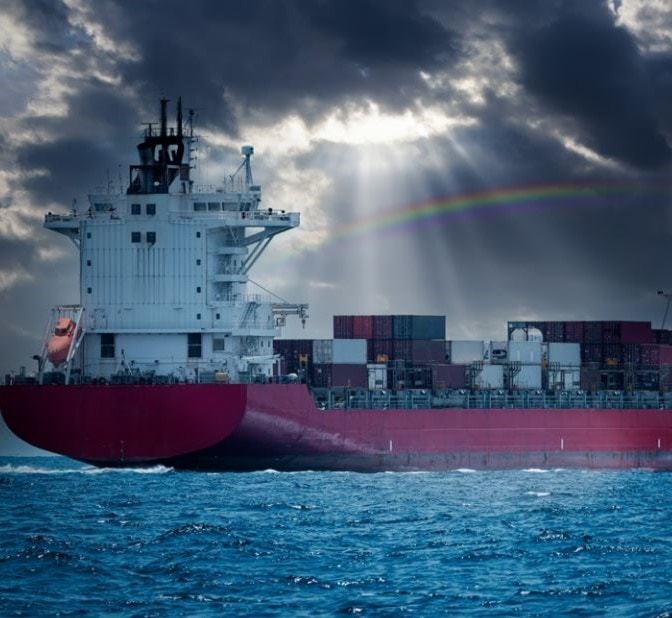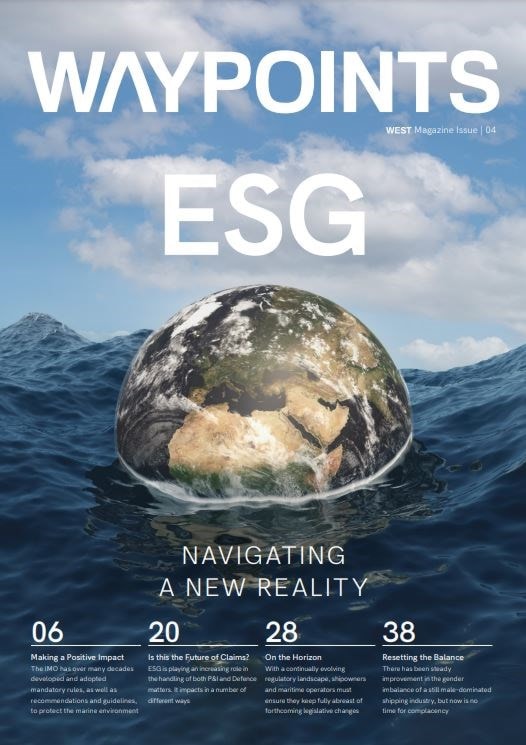Is this the Future of Claims? - Waypoints Issue 04
ESG is playing an increasing role in the handling of both P&I and Defence matters. It impacts in a number of different ways, writes Tim Davies.
Such cases could be
where the location of the sunken
vessel was remote or had no
local communities nearby. In this
particular case the Authorities
insisted on the removal of the
wreck, despite it being far from
any shipping routes or close
to any inhabitants, for purely
environmental reasons.
While wreck removal incidents are rare, the operations are becoming increasingly influenced by ESG considerations, including the mobilisation of the parties attending on site, the methods used in the removal of the vessel, the removal and disposal of cargo and any hazardous products or pollutants, and the place where the wreck or disassembled parts are finally taken.
Social aspects are very important in the handling of crew claims. Delay in dealing with an injury or illness can affect whether a case deteriorates or leads to a legal claim being pursued. There will be social implications if there is a delay in getting medical treatment ashore, if the medical facility to which the crew member is sent to is inadequate, or if, after they are discharged awaiting repatriation there is a failure to look after them and their basic needs.
Both the local
correspondents and claims
handlers need to be proactive
when dealing with cases so that
the crew members receive the
correct care and the case does
not deteriorate or escalate.


Even some of the traditionally ‘hands-on’ aspects of the P&I business such as vessel inspections can be conducted with a vastly reduced carbon footprint due to technological developments.
The use of drones (where allowed)
or Remotely Operated Vehicles
(ROVs) can be employed to
survey vessel damage or
a casualty site. The information
can be overlaid onto a digital
plan of the vessel thereby
making it possible for a repair
yard or salvor to ‘walk’ or
‘fly-through’ the casualty
on a computer screen. This
means that fewer expensive
assumptions about the scope
of work need to be made.
It also means that tenders
can be made without the need
to fly numerous contractor
representatives to personally
attend the site, saving both carbon
and costs. Costs that would
eventually find their way through
to the P&I Club’s Members.
ESG related issues can
themselves impact on claims,
where for example, climate
changes give rise to more
frequent and stronger storms,
high winds, rough seas, and lower
water levels in rivers.
Governance has an important role to play in shaping the equality and gender diversity of both the Board and Management of the Club, the values of the Club, and transparency in claims handling.
ESG is now an intrinsic part of the way in which any company is run, and increasingly, for P&I Clubs, the way in which claims are influenced and the way in which claims are handled.

